|
SPEARPOINT
Part Four
by
Stan Goff
Military/ Veterans Affairs Editor
© Copyright 2006, From The Wilderness Publications, www.fromthewilderness.com. All Rights Reserved. This story may NOT be posted on any Internet web site without express written permission. Contact admin@copvcia.com. May be circulated, distributed or transmitted for non-profit purposes only.
We will need this family to go on. Our struggle is as real as it gets. The word was just trickling out about a massacre by American troops.
We talked about My Lai. People drank. People smoked. We get through the way we know how. The next day, I delayed our departure.
During the evening, I had talked with Kelly Dougherty and Camilo Mejia about the possibility of an IVAW Gulf Coast relief and reconstruction team. They both agreed it had promise. When I mentioned it to Niki, she asked if they knew what it entailed.
What, I asked.
Mucking.
She said if we would stay longer in the morning, she would show us on a real mold-infested structure what it takes to “muck out” a house for mold abatement…the first step in clearing out a ruined home, followed by the emotionally wrenching business of carting out people’s mementoes-of-life for disposal.
Reality. Name of the game. We stayed, and Niki gave us the block of instruction.
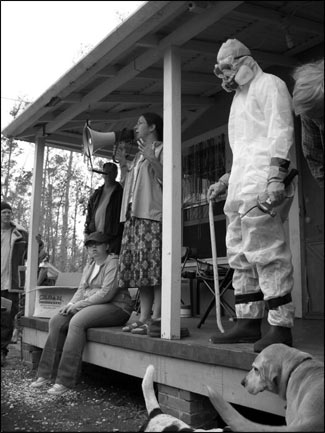
Niki Wilson shows us how to “muck out” a
flooded house for mold
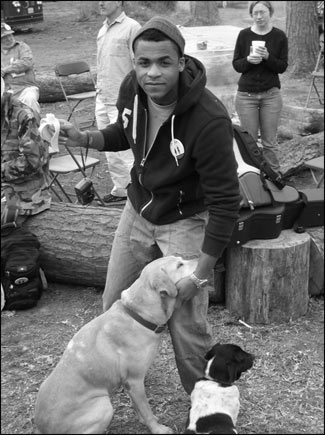
Preparation for AM move-out from Bayou Liberty,
Demond Mullins of IVAW with breakfast and dogs
We needed to know about molds and toxins. Today (March 18th), we were going to walk down the most contaminated corridor on Highway 90, from the Highway 11 junction to Vietnamese East New Orleans.
Once again, no permit.
Some people elected to walk this stretch with masks, partly out of symbolism, some perhaps out of real concern. Those with respiratory issues were encouraged to stay on the buses. The dump trucks full of bulldozed wreckage barreled down this section of the highway, and the finest particulate matter roiled off of them in an invisible toxic tube over the road.
Cindy Sheehan, whose sister Dede had been marching with us from the beginning, joined us at the 11-90 junction, where we filled an open space up with our mad convoy.
We were smaller that day, because about twenty people volunteered to clean out a local vet’s flooded house with a group called the Arabi Wrecking Crew.
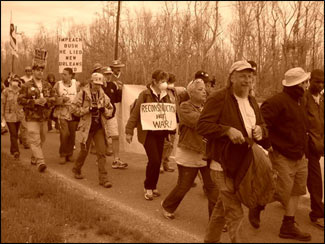
The key to understanding the strength of this action cannot be apprehended in a linear way. The outline was done in advance, but the execution was organic. The dialectic of the actual group, the peculiar geography of the personalities that came, and the relationships that tied them together was not arithmetic, but the map of a new land.
The plan was a skeletal system, but the whole living body was engaged in an interpretive dance.
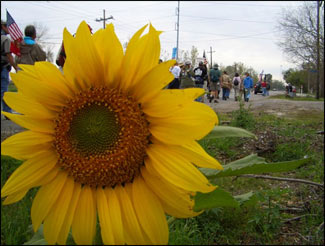
As we pulled into East New Orleans, there was trash piled up along the boulevard medians, stinking with rot. The houses had been cleared out by the Vietnamese residents themselves, and the stores were opening up; but trash pickup is reported to be years behind because of the hurricane.
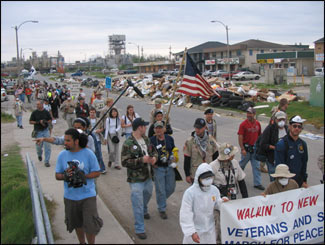
Our destination was Mary Queen of Vietnam Catholic Church, who had loaned us their soccer fields as a campground. We were met by Marty Rowland, our New Orleans march organizer. Vietnamese-American kids were playing basketball when we arrived, and within minutes, even tired from marching, both Iraq and Vietnam vets were playing a pick up game with the kids…who spanked the old guys.
Our mobile sound system had preceded us and cranked up Edwin Starr’s Motown peace classic War.
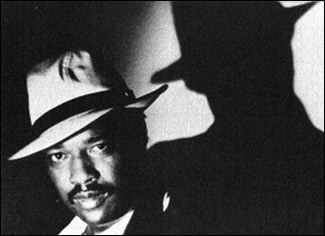
Edwin Starr
War! huh-yeah
What is it good for?
Absolutely nothing
Uh-huh
War! huh-yeah
What is it good for?
Absolutely nothing
Say it again y'all
War! huh good God
What is it good for?
Absolutely nothing
Listen to me?
Ohhh? War! I despise
Because it means destruction?
Of innocent lives
War means tears
to thousands of mothers eyes
When their sons go to fight
and lose their lives
I said - War! Huh Good God y'all
What is it good for?
Absolutely nothing
Say it again
War! Whoa, Lord...
What is it good for
Absolutely nothing
Listen to me?
War! It ain't nothing but a heartbreaker
War! Friend only to the undertaker
War! It's an enemy to all mankind
The thought of war blows my mind
War has caused unrest in the younger generation
Induction then destruction
Who wants to die?
Ohhh? War Good God y'all
What is it good for?
Absolutely nothing
Say it, Say it, Say it
War! Uh-huh Yeah - Huh!
What is it good for?
Absolutely nothing
Listen to me?
War! It ain't nothing but a heartbreaker
War! It's got one friend, that's the undertaker
War has shattered many a young mans dreams
Made him disabled bitter and mean
Life is much to precious to spend fighting wars these days
War can't give life, it can only take it away
War! Huh Good God y'all
What is it good for?
Absolutely nothing
Say it again
War! Whoa, Lord...
What is it good for
Absolutely nothing
Listen to me?
War! It ain't nothing but a heartbreaker
War! Friend only to the undertaker
Peace Love and Understanding;
tell me, is there no place for them today?
They say we must fight to keep our freedom
But Lord knows there's got to be a better way
War! Huh Good God y'all
What is it good for?
You tell me
Say it, Say it, Say it
War! Huh Good God y'all
What is it good for?
Stand up and shout it.
Nothing!
Needless to say, within moments, the footsore troupe was dancing.
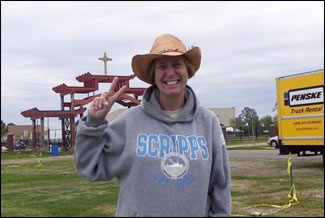
Cindy Sheehan at the Vietnamese Catholic church
While any discussion of the Vietnam War might have engendered conflict between us and the residents of this community (many of them with roots as partisans of the Saigon regime), the fact that we were joining their call to rebuild the Gulf, and that we would do so from inside their community created a very supportive atmosphere. The kids were highly curious about us, and hung around enjoying the spectacle while we enjoyed being around the kids.
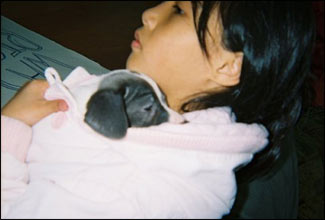
Young Vietnamese-American survivor from
E NOLA…with friend
That afternoon and evening, we had the Veterans Artist Collective, mostly featuring music from within our ranks. The musicians from Slidell had had such a good time with us the night prior that they drove to New Orleans to spend that evening with us again, and they played too…on the stage, and did improv music around a campfire later on.
Charlie Anderson blew everyone away with his song The Price We Had to Pay.
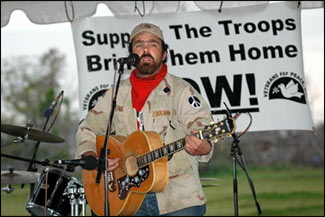
Charlie Anderson, IVAW
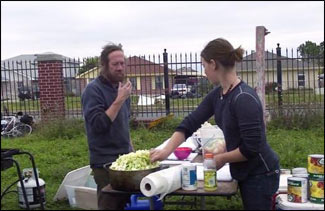
Chef Grumble on the chow-line, East New Orleans
In East New Orleans, it got cold again at night, and still people stayed up until past 2 o’clock in the morning because they could not get enough of what it was when they were together. We were getting a glimpse of something that the laptop bombardiers of virtual organizing—hidden in their safe warm cubicles—and that the hit-and-run demonstrations could not produce except as a vague imaginary. We were seeing in each other the outlines of a future society, one without alienation, one where all are valued equally, and one where living life is itself an act of creativity.
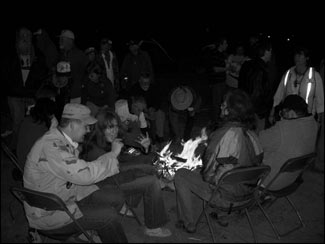
Geoff Millard, IVAW, et al, outside Mary Queen of
Vietnam Catholic Church, 2 AM
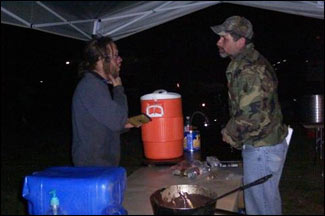
4:30 AM…Stan, jonesing…“will do sexual favors
for coffee, Grumble.”
March 19, 2006. Third anniversary of the invasion of Iraq. When we depart Little Vietnam, we caravan to Chalmette National Military Cemetery. It is adjacent to the memorial for the Battle of New Orleans. We are thinking that we may need to inaugurate the 2nd Battle of New Orleans.
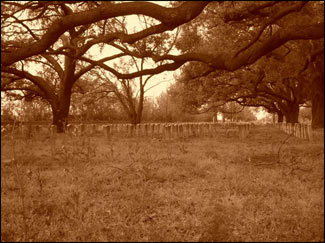
Chalmette National Military Cemetery
The Chalmette City Council has offered to feed us breakfast there. This seems a tacit endorsement of the goals of the march. A local councilman welcomes us and thanks us for bringing the media attention to their plight.
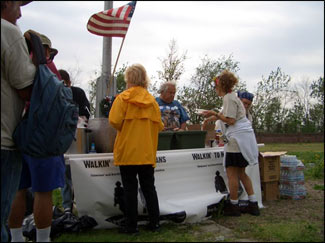
Breakfast at Chalmette Cemetery
We have veterans of every conflict since World War II, and it is a powerful series of statements in a powerful place, where the whole sordid history of the US, from slavery to Jim Crow, to every military adventure since the Civil War is laid out, literally, under the headstones.
But no one is more powerful that Gene Glazier. I wish I still had the text of his remarks. All I remember was that they were perfect, that they captured the human costs of war, and that I wiped aside tears when he was finished. I found myself being immensely proud of being a member of Veterans For Peace…because Gene Glazier was one of us.
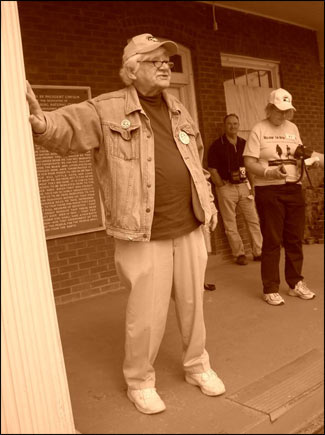
Gene Glazier, veteran of WWII, VFP
From here, we will make the last leg. We will walk into the middle of New Orleans, passing the devastated 9th Ward en route. People are reacting to this with a mixture of excitement and sadness. Many say they do not want this to end.
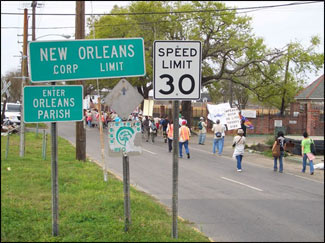
Walking onto our objective
We made a detour to pass Fats Domino’s home, and to meet Common Ground Collective workers at Martin Luther King Elementary School (scheduled to re-open in 2008!). The trip past the 9th Ward was somber, but within one block we could feel the outrage building. If we can build city-like bases in Iraq to make war on other people, why can’t we get these people back home? The 9th Ward is 90% depopulated.
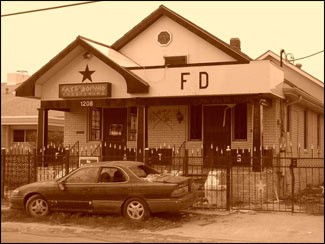
Fats Domino’s house
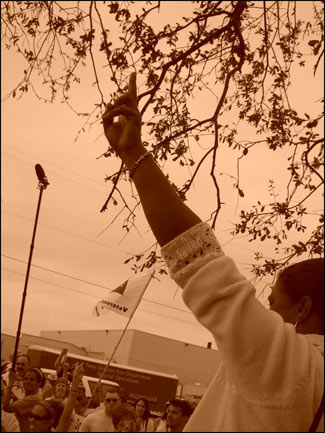
Met and greeted by Common Ground Collective relief
workers and hurricane survivors – Kim
Hutchins (3rd Ward) presiding
With the meeting at MLK Elementary School, our ranks swelled and we were re-infused with the energy of the young people working there. Marxists, libertarians, anarcho-kids. Quakers, Vietnam and Iraq veterans, Buddhists, prophetic Christians, Muslims, and a lot of people who just still had enough plain decency to give a shit, walked together as one.
Like everything else on this action, the material was fused with the symbolic and we flowed together like a river to pout into Armstrong Park.
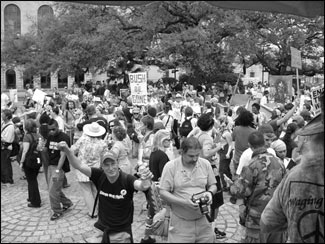
Playing on the sound system again…Edwin Starr’s War.
We had done it, and we danced about it.
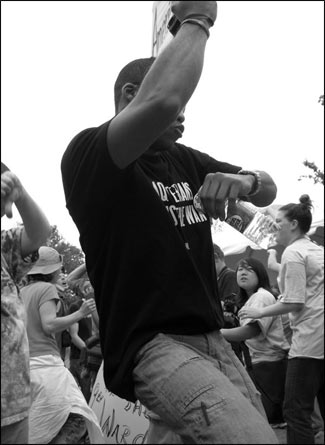
We had more speeches, more music. And people had to go. One by one, we embraced, cried, bid each other goodbye.
I’ll start to close now. There are so many more people to describe, so much more that happened that I haven’t recorded in this tiny glimpse of what we did. It’s late. My head hurts from wearing my glasses.
I’ll say this, though.
Off the defense and on the offense!
Very nice.
There is also a quality/quantity something-or-other about this…again, how we pulled in a character-demographic, and didn’t aim for raw numbers as a show of strength that could be declared hollow the next day. The ruling circles have discovered that in this period they can ignore even millions of demonstrators without much trouble…that we go home and behave ourselves, or scratch our heads after each demo and ask ourselves…what now? We have been asking ourselves for three years now how to break through that ability to ignore us on the one hand, and the inability and unwillingness of the broad masses to engage in what we conceive of as open rebellion and politico-economic disruption.
We need our own institutions…as my friend De says, in the interstices abandoned by both the state and ruling-class civil society, and they have to be organic. Time to look over that Gramsci again, folks. Our own service provision, our own education, our own media, our own conflict resolution, our own juridical norms, our own medicine, our own logistics, our own food…beginning in those places that are most massively abandoned, like the Gulf Coast. Common Ground Collective, The People’s Hurricane Relief Fund, SOS and others are already establishing a new culture that has staked out actual territory in the region, and the relationships that constitute the germ of community are being built. Once that community is built, we have already won in a real sense.
A sister on the march said that she sees the same circumstance writ small in Detroit…we can begin building these communities of support and resistance locally, everywhere. There is much to be said for mounting a nationwide struggle with local foci against gentrification (Google it). The struggle against gentrification is a direct struggle for self-determination right here in the US. This, along with counter-recruitment, puts us directly in the neighborhoods. And we have to fight to open the prison gates. It is a moral imperative.
***
Territory, again.
We prioritized their issue, and committed to follow through. And now we have the potential to contest with those in power, in solidarity with the people with whom we have met and to whom we have committed, to defend their homes against the encroachments of what promises to be the most massive gentrification project in American history.
We have positioned ourselves for a fight to defend the homes—the territory—of our allies. This could become a new kind of fight, and by making the issues land, popular sovereignty, and the fight against militarized population control (especially against the prison-industrial complex and felony disfranchisement), we have taken on a new quality of struggle…and one that applies equally to the occupation of Iraq and the occupation of the Gulf Coast.
Not only does the fight against gentrification and lockdown in the Gulf Coast go straight to the heart of the oppression unmasked there by the hurricane and the government’s response, these two issues can be linked to the issue of the war nationwide, and thereby centralize the immediate and emergency concerns of black, brown, and poor people all over the country. If white progressives are serious about transformation, we have to understand that the mobilizable masses are not those high on the relative comfort scale. They don’t need our direction. They know where they need to get. They need our numbers, our resources, and our added strength.
We have to learn to be the change we envision.
Dave Cline and I were talking, and he is suggesting a parallel, two-step campaign…one I want to endorse in its general outlines. “Home by Christmas” as part of the Bring Them Home Now! campaign, that whips the living hell out of that lily-livered Congress—followed by a build up of marches similar to the one we just did, but across individual states, culminating in state capitols across the country. Detroit to Lansing. Fayetteville to Raleigh. Bay Area to Sacramento. Albuquerque to Santa Fe. Portland to Salem. Newark to Trenton. And on and on. Four or five day walks and caravans, camping again, landing each night in some community under assault by thuggish police, by gentrifiers, or economic crisis. Linking with African Americans, Hispano-Latinas, Native Nations. Joining their issues, accepting their leadership, and sharing our resources. Converging in state capitols on the fourth anniversary of the war, with our motley marchers, led by vets, especially Iraq vets, and our peace-train convoys of cars…a new popular democracy struggle on the move.
A program that is not trapped in policy, but tied to territory. A revolution that knows how to dance (we did that well, didn’t we, in the street and in the camps?). A movement that is coming off the defensive and taking it to them one day’s march at a time. Let’s teach people how we learned to love and lose our fear.
Just a riff in my head. I’m still padding down Highway 90, drinking Grumble’s coffee, hearing our drums, huggin’ folks goodnight.
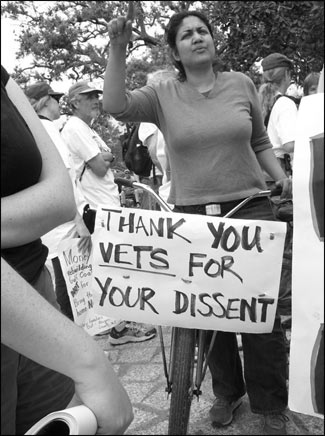
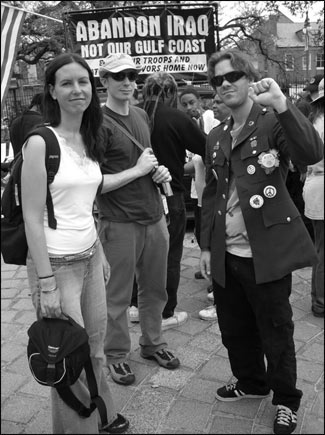

Please Note
This function has been disabled.
|
|
|
|



